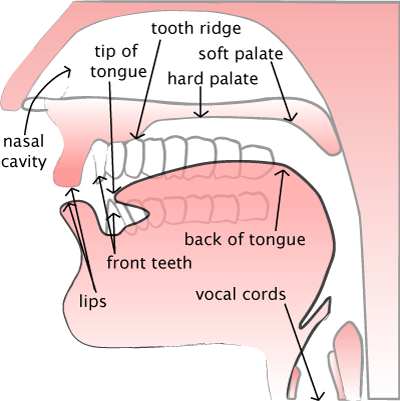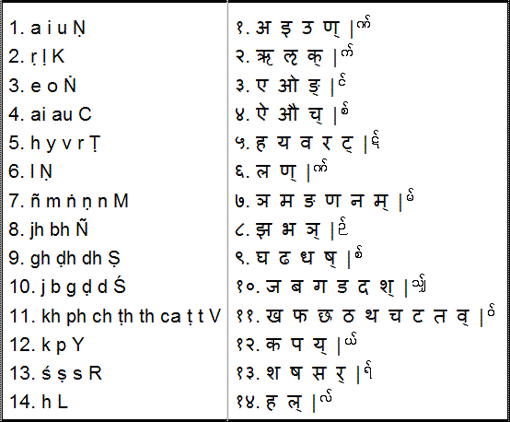
Speech is intention-encoding sound produced by human vocal tract or its artificial Ersatz.

pronounce continuous AAAA , EEEE , IIII and OOOO waves
put a finger in front of Your lips; start voicng a vowel sound; while doing so, make Your lips touch Your finger; what do You notice
pronounce PA PA PA and BA BA BA
pronounce MA MA MA
pronounce TA TA TA and DA DA DA
pronounce NA NA NA
pronounce FA FA FA and VA VA VA
...in all cases, try to answer questions: what is similar ? what is different ?a phone is any distinct speech sound regardless of whether the exact sound is critical to the meanings of words
a phoneme is a speech sound in a given language that, if swapped with another phoneme, could change one word to another
Phones are absolute and are not specific to any language, but phonemes can be discussed only in reference to specific languages.| word 1 | word 2 | IPA 1 | IPA 2 | note |
|---|---|---|---|---|
| pin | bin | /pɪn/ | /bɪn/ | initial consonant |
| rot | lot | /rɒt/ | /lɒt/ | |
| thigh | thy | /θaɪ/ | /ðaɪ/ | |
| seal | zeal | /siːl/ | /ziːl/ | |
| bin | bean | /bɪn/ | /biːn/ | vowel |
| pen | pan | /pɛn/ | /pæn/ | |
| cook | kook | /kʊk/ | /kuːk/ | |
| hat | had | /hæt/ | /hæd/ | final consonant |
| mean | meme | /miːn/ | /miːm/ |
